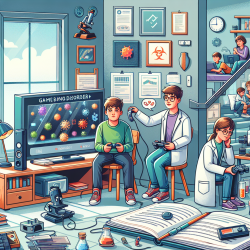Introduction
In the rapidly evolving digital age, internet gaming has become a prevalent form of entertainment among adolescents. While gaming can offer numerous benefits such as enhanced problem-solving skills and social interaction, it also poses risks of developing Internet Gaming Disorder (IGD), a condition recognized by the DSM-5 as warranting further study. The iCURE study, conducted in Korea from 2015 to 2019, provides valuable insights into the natural and clinical courses of IGD in early adolescence.
Understanding the iCURE Study
The Internet user Cohort for Unbiased Recognition of gaming disorder in Early Adolescence (iCURE) is a longitudinal cohort study that aims to clarify the characteristics of IGD in adolescents. Conducted across 21 schools in Korea, the study involves a multidisciplinary approach to gather data on emotional, social, and environmental factors influencing gaming behaviors.
The study's methodology includes surveys and clinical diagnostic interviews based on the DSM-5 criteria for IGD. Two subcohorts were established: a representative subcohort for evaluating the clinical course of IGD and a clinical evaluation subcohort for those meeting specific IGD criteria.
Key Findings and Implications for Practitioners
The iCURE study highlights several critical aspects of IGD:
- Prevalence and Risk Factors: The study found a significant prevalence of IGD among adolescents, emphasizing the need for early identification and intervention. Factors such as excessive gaming time, social anxiety, and low self-esteem were identified as risk factors.
- Diagnostic Criteria: The study supports the DSM-5 criteria for IGD but also suggests the need for further empirical validation to ensure accurate diagnosis and treatment.
- Clinical Course: The longitudinal data from the study provide insights into the progression, remission, and recurrence rates of IGD, aiding in the development of targeted therapeutic strategies.
Practitioners can leverage these findings to enhance their understanding of IGD and implement evidence-based interventions. Engaging in further research or professional development opportunities, such as webinars and conferences, can also help practitioners stay informed about the latest advancements in diagnosing and treating IGD.
Encouraging Further Research
While the iCURE study offers a comprehensive overview of IGD in adolescents, there remains a need for ongoing research to refine diagnostic criteria and treatment approaches. Practitioners are encouraged to contribute to this body of knowledge by conducting their own studies or collaborating with research institutions.
Conclusion
The iCURE study provides a foundational understanding of IGD in adolescents, highlighting the importance of early detection and intervention. By incorporating the study's findings into practice, educators and mental health professionals can better support adolescents at risk of or experiencing IGD.
To read the original research paper, please follow this link: Study protocol of the internet user Cohort for Unbiased Recognition of gaming disorder in Early adolescence (iCURE), Korea, 2015–2019.










